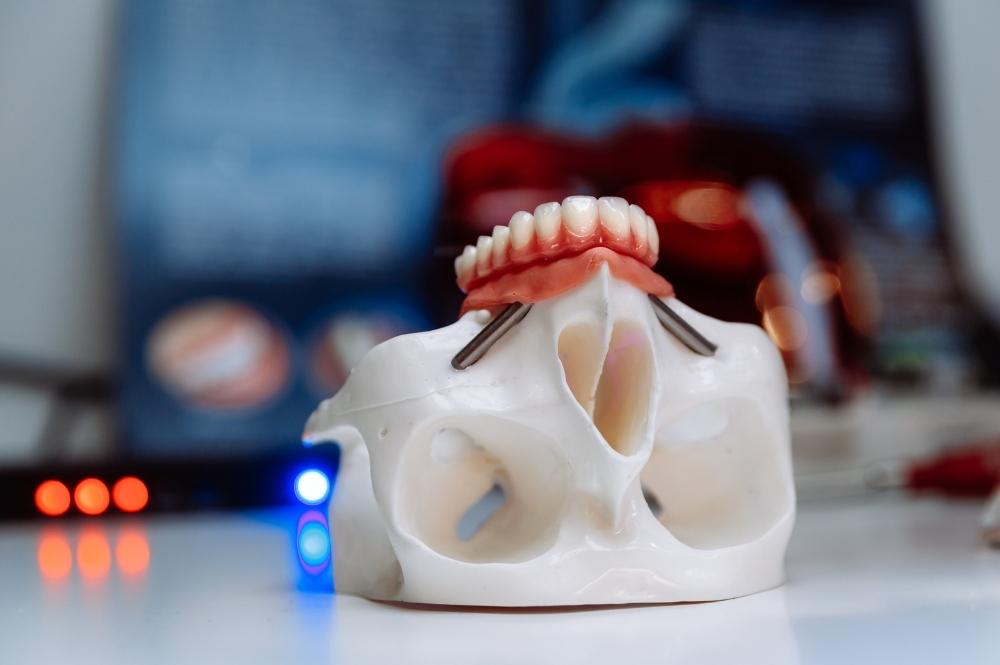
What is Oral, Dental, and Maxillofacial Surgery?
Oral, Dental, and Maxillofacial Surgery is one of the seven main branches of dentistry. It is a scientific discipline responsible for the diagnosis and treatment of various diseases, deficiencies or excesses, aesthetic deformities, and growth-development disorders occurring in the hard and soft tissues of the jaw and facial region.
Are Operations Performed Under Local or General Anesthesia?
Most Oral, Dental, and Maxillofacial Surgery procedures can be performed safely and comfortably under local anesthesia. However, in cases where a major or long-lasting operation is required, or if the patient experiences stress-related anxiety, or if the patient cannot undergo local anesthesia due to age or illness, these procedures can also be safely, comfortably, and successfully performed under general anesthesia.
Who is an Oral, Dental, and Maxillofacial Surgeon?
Oral, Dental, and Maxillofacial Surgeons are specialists who, after completing 5 years of dental education, undergo at least 4 years of specialty training to gain competence in treating these conditions. Specialists who choose to continue their academic education after their specialty training pursue further advanced education for at least 4 more years, achieving the rank of associate professor after demonstrating the necessary academic performance and passing exams. During the academic process, they are required to present at conferences both nationally and internationally, write articles, author books, review journals, and provide guidance to dental students and residents. After completing a 5-year associate professorship period, they are eligible to become professors.
What Treatments Are Provided by Oral, Dental, and Maxillofacial Surgery?
Oral, Dental, and Maxillofacial Surgery specializes in diagnosing and treating conditions in the hard and soft tissues of the mouth, teeth, and jaw. It is responsible for prescribing necessary medications and performing surgical interventions when required. Most procedures are completed quickly in a clinical setting, without requiring hospitalization, allowing the patient to continue with their daily life and social activities without disruption.
Procedures within the Oral, Dental, and Maxillofacial Surgery department are carried out by specialist surgeons in a clinic or hospital environment. The field encompasses a wide range of treatments, involving soft tissues such as the gums, lips, tongue, cheeks, and salivary glands, as well as teeth, the upper and lower jawbone, and the jaw joint. The treatments include:
Implant Applications
– Prefabricated Cylindrical Implant
– Custom Subperiosteal Implant
– Zygomatic Implants (Cheekbone)
– All on 4 / All on 5 / All on 6
– Sinus Lifting
– Closure of Sinus Openings
–Tooth Extraction
– Erupted Tooth Extraction
– Complicated Tooth Extraction
– Orthodontic Tooth Extraction
– Impacted Tooth Extraction
– Wisdom Tooth Extraction
– Surgical assistance for impacted teeth to erupt
– Bone Augmentations
– With patient’s own bone (Ramus Graft, Symphyseal Graft, Iliac Bone Graft)
– With biomaterials (bone powder)
– Root Tip Resection (Apicoectomy)
– Removal of inflamed tissues at the root tip
– Treatment of Jaw Infections
– Abscess drainage
– Cyst and Tumor Resection
– Jaw Joint Surgery (Arthrocentesis, Arthroscopy, Open Joint Surgery)
– Biopsy of Abnormal Formations in the Mouth and Jaw
– Orthognathic Surgery
– Upper Jaw / Lower Jaw
– Chin Surgery (Genioplasty) for aesthetic/medical purposes
– Gummy Smile Surgery
– Preprosthetic Surgery (Tissue adjustments before prosthetic treatment)
– Treatment of Salivary Gland Disorders
– Treatment of Cleft Lip and Palate
– Trauma Treatment
– Jaw and facial fractures
– Tooth fractures
– Soft tissue injuries
– Bichectomy
– Bruxism (Teeth grinding and clenching) Treatment
– Treatment of Snoring, Speech, and Breathing Disorders
What is a Wisdom Tooth? Why Does It Become Impacted?
A wisdom tooth is the third molar that typically erupts around the age of 20, which is why it is called the “20-year tooth” in some regions. When there is sufficient space in the jaw and the tooth erupts in the correct position, it functions like any other tooth. However, due to limited space, wisdom teeth often become impacted because the other teeth have taken up the available space.
Do All Wisdom Teeth Become Impacted?
No. If there is enough space for the tooth to erupt properly, wisdom teeth will emerge without becoming impacted. Due to anatomical differences, lower wisdom teeth are more frequently impacted than upper ones.
### What Does Fully Impacted or Partially Impacted Mean?
A tooth is called partially impacted when part of it is visible in the mouth. If the tooth is completely covered by gum tissue, it is called fully impacted.
Do All Wisdom Teeth Need to Be Extracted?
No. Healthy wisdom teeth that have erupted properly do not need to be extracted. However, if a properly erupted tooth is hard to maintain due to its location and poses a risk of decay or infection, it may need to be extracted. In some cases, the tooth has erupted completely but is in an incorrect position, in which case, a maxillofacial surgeon will decide if extraction is necessary.
Do All Impacted Wisdom Teeth Need to Be Extracted?
No. Partially impacted teeth are more prone to decay and infection since they cannot be cleaned properly. Therefore, their extraction is more common than fully impacted teeth. Fully impacted teeth, even if asymptomatic, can cause damage to adjacent teeth or develop cysts. Symptomatic impacted teeth should be extracted. Asymptomatic teeth should be evaluated by a maxillofacial surgeon, and preventive extraction may be recommended.
Do All Wisdom Teeth Cause Crowding of the Front Teeth?
No. The position and direction of the tooth are determining factors. Crowding can occur in individuals without wisdom teeth or those whose wisdom teeth have erupted properly. Patients who suspect their wisdom teeth are causing crowding should be evaluated by a maxillofacial surgeon and an orthodontist. If necessary, an extraction plan will be provided.
Impacted Canine Teeth
Although wisdom teeth are commonly impacted, any tooth can become impacted. After wisdom teeth, the most commonly impacted teeth are the canine teeth. Unlike wisdom teeth, impacted canines are more frequently found in the upper jaw.
Post-Extraction Care for Impacted Teeth
After almost all dental/jaw surgeries, it is important to follow these care instructions:
– If a gauze pack is placed, bite down firmly for 30 minutes without changing it, and do not place another unless advised.
– Avoid rinsing or spitting (for the first 24 hours).
– Do not eat or drink anything for 2 hours following the procedure (except prescribed medications). After 2 hours, consume only warm, soft foods like purees. Avoid hot, granular, acidic, or hard foods.
– Do not touch the surgical area, irritate it with your tongue, or make suction motions.
– Refrain from alcohol and smoking for the first 24 hours. Smoking can disrupt blood clotting and lead to infection. If stitches have been placed, avoid smoking until they are removed.
– Mild bleeding for 6-24 hours is normal. Swallow any accumulated blood instead of spitting it out. If excessive bleeding occurs or persists beyond the mentioned time, place gauze on the bleeding area and contact your doctor.
– Use any prescribed medications as directed. If no prescription is given, avoid aspirin and opt for another pain reliever if needed.
– Keep the surgical site clean and free of food debris. If a mouthwash is provided, use it regularly. After 24 hours, gently clean the area with a soft toothbrush.
– If cold therapy is recommended, apply it externally to the surgical area in intervals for the first 24 hours (10 minutes on, 5 minutes off). Do not apply ice packs or gels directly to the skin; use a towel or the pack’s cover.
– Pain, swelling, bruising, and limited mouth opening may occur after surgery. These symptoms are normal and will gradually decrease over a week.
– If stitches are placed, schedule a follow-up appointment to have them removed 7-10 days later.
At A1DENT Oral and Dental Health Clinic, our expert team, fully equipped facilities, and modern, comfortable clinic environment provide first-class services in Oral, Dental, and Maxillofacial Surgery, along with all other branches of dentistry.
